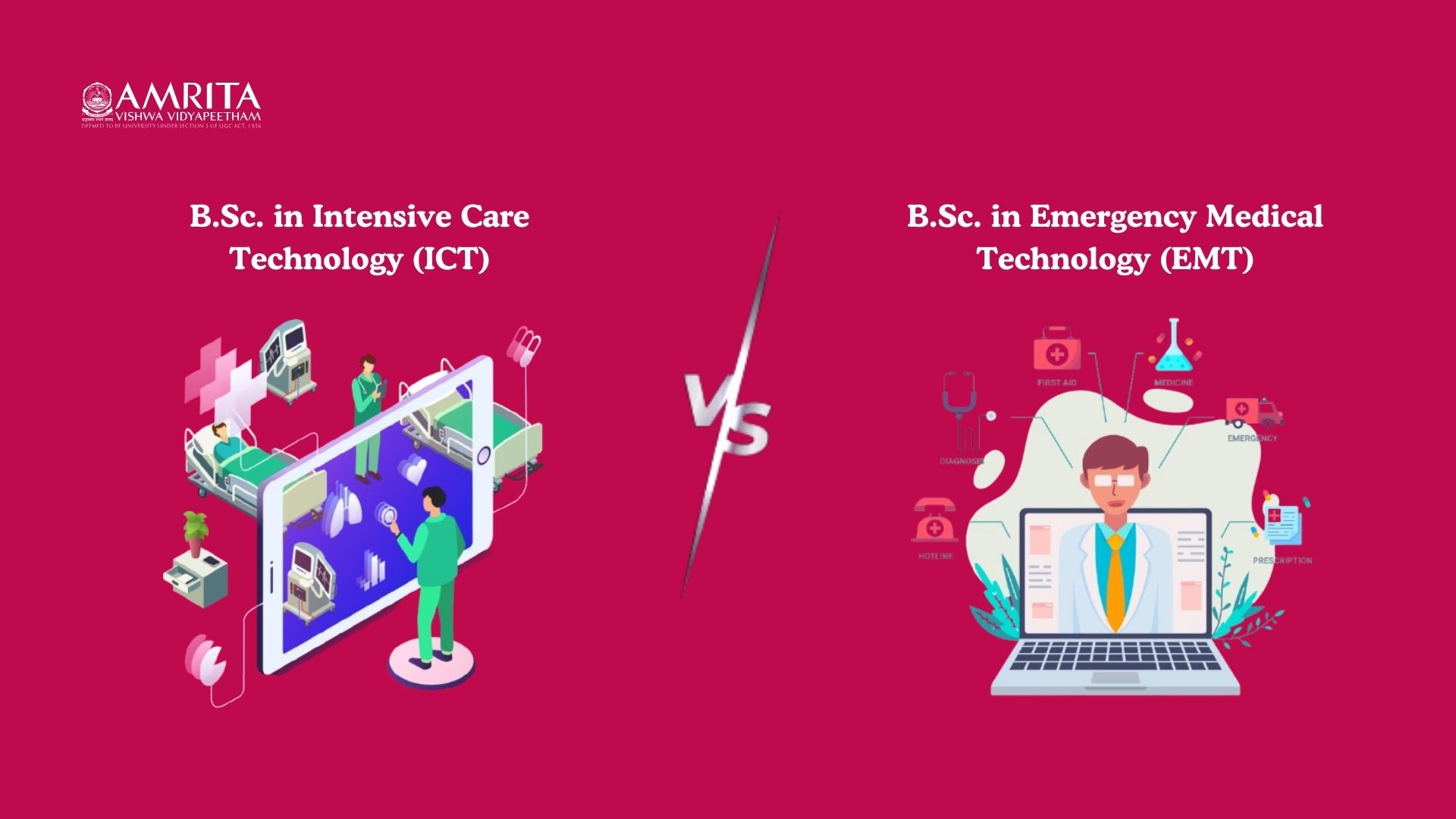Programs
- M. Tech. in Automotive Engineering -Postgraduate
- B. Sc. (Hons.) Biotechnology and Integrated Systems Biology -Undergraduate

Are you passionate about healthcare and aspire to make a difference in patients’ lives? If so, you might be considering a Bachelor of Science (B.Sc.) degree in either Intensive Care Technology (ICT) or Emergency Medical Technology (EMT).
While both programmes prepare you for rewarding career opportunities in medical care, they have distinct curricula and skill sets.
In this article, we will explore the key differences between these two specialisations to help you make an informed decision about your future in healthcare.
The ICT programme focuses on the management of critically ill patients in Intensive Care Units (ICUs). As an ICT professional, you will work closely with physicians and nurses to provide comprehensive care to patients with life-threatening conditions. The curriculum covers subjects such as:
On the other hand, the EMT programme emphasises pre-hospital and emergency medicine. EMT professionals are the first responders in medical emergencies, providing immediate care and transporting patients to healthcare facilities. The EMT curriculum includes topics like:
While both programmes share foundational medical knowledge, their curricula differ significantly in terms of specialisation and focus.
As you progress through your chosen programme, you’ll acquire a unique set of skills tailored to your specialisation.
To pursue either the ICT or EMT programme at Amrita University, you must meet the following
eligibility criteria:
The admission process involves the following steps:
Graduates of both ICT and EMT programmes have diverse career prospects in the healthcare industry.
Choosing between a B.Sc. in Intensive Care Technology and a B.Sc. in Emergency Medical Technology ultimately depends on your personal interests, aptitude, and career aspirations. Both programmes offer rewarding career opportunities in medical care, allowing you to make a meaningful impact on patients’ lives.
If you are drawn to the challenges of managing critically ill patients in a hospital setting, the ICT programme might be the perfect fit for you. On the other hand, if you thrive in fast-paced, high-pressure situations and want to be at the forefront of emergency response, the EMT programme could be your calling.
To learn more about these programmes and take the first step towards a fulfilling healthcare career, reach out to the experts at Amrita University. They will guide you through the admission process, answer your questions, and help you make an informed decision about your future.
Both the B.Sc. in Intensive Care Technology and B.Sc. in Emergency Medical Technology programmes at Amrita University are four-year UG programs, including three years of coursework and a one-year mandatory internship.
To meet the eligibility criteria for the ICT and EMT programs, you should study Chemistry and Physics in 12th grade and secure a minimum aggregate of 60% marks in these subjects.
Both programs include extensive practical training through laboratory sessions, simulations, and clinical rotations. ICT students gain hands-on experience in operating critical care equipment and monitoring patients, while EMT students practice life support techniques and emergency response procedures.
Yes, graduates of both programs can pursue postgraduate specialisations in their respective fields. For example, ICT graduates can opt for M.Sc. in Critical Care or M.Sc. in Medical Technology, while EMT graduates can choose M.Sc. in Emergency Medicine or M.Sc. in Disaster Management.